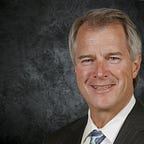Condoleezza Rice Speaks to the Hoover Institution: What You Need to Know
For over 100 years, the Hoover Institution has been collecting information and generating ideas to support freedom, with the ultimate aim of improving the human condition. The organization’s work has profoundly impacted public policy initiatives, both within the United States and around the world.
On April 14, 2020, the Hoover Institution spoke with Condoleezza Rice regarding COVID-19. In this article, we look at what Professor Rice had to say.
Condoleezza Rice: A Professional Profile
Condoleezza Rice is a former US Secretary of State. She served between 2005 and 2009 under the George W. Bush administration. A professor, civil servant, diplomat, and political scientist, Condoleezza Rice was America’s first female African American Secretary of State.
Born in Birmingham, Alabama, in 1954, Rice grew up during racial segregation. She graduated from the University of Denver with a bachelor’s degree before attending the University of Notre Dame, where she earned a master’s degree in political science. Condoleezza Rice earned a PhD from the University of Denver’s School of International Studies.
She later moved to Stanford, where she pursued an academic fellowship. Rice subsequently joined the National Security Council as President George H.W. Bush’s Soviet and Eastern Europe Affairs advisor. She served throughout the historic period of German reunification and Soviet Union dissolution between 1989 and 1991.
Following her appointment as US Secretary of State, Professor Rice pioneered a government policy known as Transformational Diplomacy, which aimed to increase the number of democratic governments in the Middle East. Rice served as board chairman at the Millennium Challenge Corporation. In 2009, she returned to Stanford University, joining the Hoover Institution as well as serving as a political science professor.
Condoleezza Rice Addressed the Hoover Institution on April 14, 2020
During a webinar she presented on the issue, Condoleezza Rice explained that instead of responding as one, countries are increasingly pulling away from global organizations and responding individually. As the COVID-19 health crisis spreads across the world, conversations like Professor Rice’s have never been more important.
She explained that in times of uncertainty, people have a habit of reverting to what they know best, particularly in terms of democracy, relying on elected leaders and responding country by country. Professor Rice gave the example of travel bans between countries. Individual countries determined the pace at which to tell their citizens to shelter rather than this being decided by some international body.
Professor Rice explained that Presidents and Prime Ministers have been turning to their own national experts for guidance rather than consulting global bodies. She said that the world’s reaction to COVID-19 has been quite surprising. It suggests that instead of moving towards globalization, countries around the world seem to have become more introspective, looking inwards for answers rather than reaching out to other countries and global organizations.
Rice gave the example of Europe, explaining that the EU has strived for decades to create a borderless continent, with one passport and freedom of movement. She pointed out that when COVID-19 reached Italy, and began sweeping across Europe, EU nations were quick to break away from the collective. They started acting individually, with several countries closing their borders, effectively shutting themselves off from their neighbors.
When asked whether international organizations should be doing more, Professor Rice theorized that the situation will probably unfold in phases. The initial instincts of world leaders are to take care of their own, and to repatriate citizens and instill travel bans.
These are perfectly logical goals given the current climate. Rice suggested that in time, however, international organizations should take a bigger role in terms of formulating an economic response. The G20 — the 20 largest economies in the world — should spearhead these efforts, just as they did in the wake of the financial crisis of 2008/2009.
Professor Rice rationalized that, in developing nations, it will be vital to leverage progress made over the last two decades by international collaboratives, particularly in terms of improving healthcare outcomes. She pointed out that the President’s Emergency Plan for AIDS Relief has effectively created a huge international network, building healthcare systems and distribution networks from the ground up in developing nations.
She explained that this network has played a pivotal role in facilitating distribution of antiretroviral drugs to some of the world’s remotest locations. While it was originally implemented to tackle HIV/AIDS, the network could be repurposed and mobilized in the fight against COVID-19.
Professor Rice said that although the instinct to protect one’s own is understandable at the outset, she hoped that in time countries would begin to see the bigger picture. In terms of finding an eventual solution to COVID-19 and putting an end to this global health crisis, we need to work together, both in terms of formulating an effective response, and preventing a similar situation ever happening again.
About the Hoover Institution
With its world-renowned library and eminent scholars, the Hoover Institution seeks to promote economic prosperity and opportunity through the advancement of ideas, with the overriding aim of improving the human condition. The organization ultimately seeks to secure and safeguard peace, both within the United States, and for all mankind.
